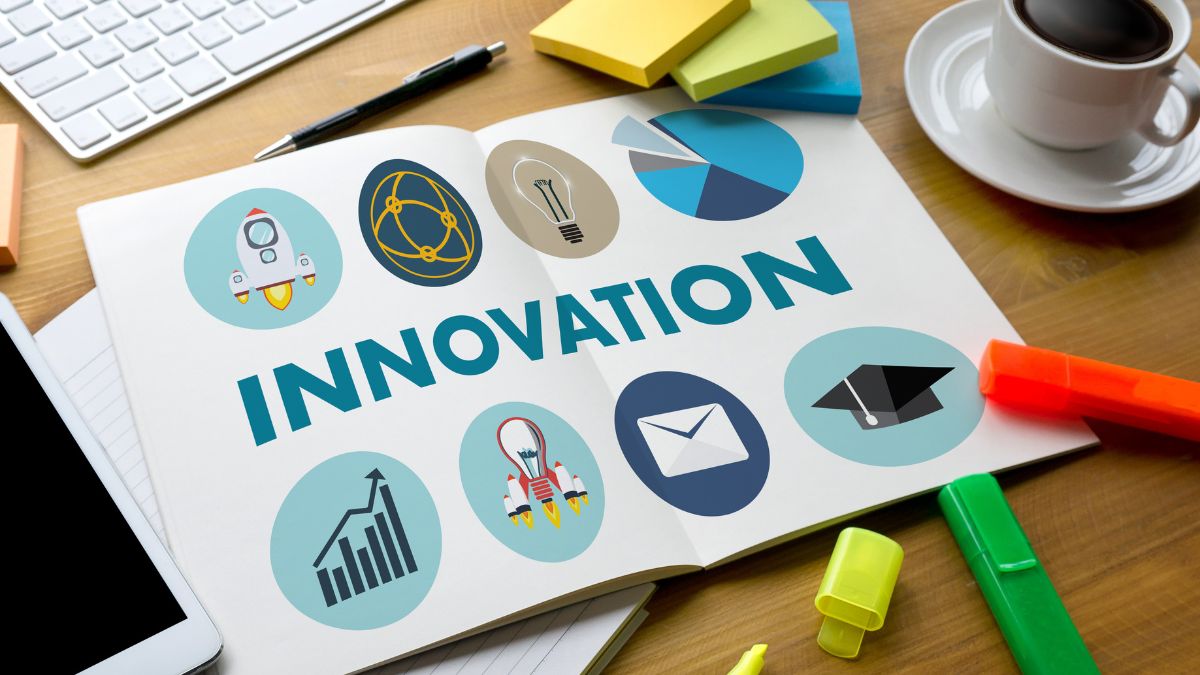Technology never stands still. Every year, new ideas emerge that change the way we live, work, and communicate. As we approach 2025, we will witness a wave of innovation that is more than just minor improvements. These significant developments are transforming businesses, improving daily life, and opening doors we could never have imagined. The future is here, and it’s coming faster than ever before. It encompasses everything from artificial intelligence to health technology.
This article explores the key technological developments that will define 2025. Each section describes a new trend, what it means for everyday people, and why it’s so important. Whether you’re a casual reader focused on future trends or an entrepreneur ready for change, this guide will help you understand the technologies that will define the year.
Artificial intelligence is getting smarter and more user-friendly
Artificial intelligence (AI) is no longer just a buzzword; we use it every day. Today’s AI is better, faster, and more user-friendly than it will be in 2025. Creative tools powered by AI help with writing, design, and coding, while advanced bots can conduct natural conversations—these technologies already permeate every aspect of our lives.
AI is transforming everything in business. Companies are using it to analyze customer data, predict market trends, and automate mundane tasks, saving time and improving efficiency. Advanced AI is now being applied to everyday applications like language translation, personal assistants, and smart home devices, delivering a smooth, personalized user experience.
Accessibility will be a major change in 2025. AI tools that once required expensive subscriptions or powerful computers are now accessible to many through cloud-based services and mobile apps. A growing number of people, including students, employees, and entrepreneurs, can benefit from the power of AI without needing extensive technical knowledge.
How Quantum Computing Is Developing
Artificial intelligence has received a lot of attention, but quantum computing is quietly developing into one of the most important new technologies of 2025. While traditional computers use bits (ones and ones), quantum computers use qubits, allowing them to quickly solve very complex problems.
Thanks to the efforts of companies like Google, IBM, and Microsoft, quantum computing is now being applied in the real world, making it more stable and practical. Quantum models are making significant progress in fields such as health, transportation, and climate science. For example, researchers are using quantum energy to simulate new medicines and materials, which could shorten development times by years.
Quantum computers haven’t yet reached every household, but their impact is being felt behind the scenes. Large-scale data analysis is already paying off for businesses. Ultimately, quantum computing will benefit consumers through faster services, better healthcare, and more comprehensive solutions to global problems.
Smarter, More Sustainable Energy Solutions
Sustainability is the theme for 2025, and technology is driving better green solutions. Innovations in renewable energy, battery storage, and smart grids are changing the way we power the world.
The significant increase in the efficiency and affordability of solar panels has made them a viable option for homes and small businesses. At the same time, developments in battery technology are addressing one of the biggest challenges for renewable energy: energy storage. Modern batteries can store more energy, last longer, and charge faster, increasing the reliability of renewable energy.
Smart grids are also gaining popularity. These systems use artificial intelligence and real-time monitoring to efficiently distribute electricity, reduce waste, and prevent blackouts. For consumers, this means lower energy bills and a smaller carbon footprint. For the planet, it’s a step toward combating climate change.
The Expansion of 5G and the Arrival of 6G
Connectivity is the backbone of modern technology and will be faster and more powerful than ever before by 2025. 5G networks are already ubiquitous, offering ultra-fast, reliable, low-latency connections that enable applications from smart cities to self-driving cars.
But the big story of 2025 will be the early deployment of 6G. While 6G is still in its infancy, it promises speeds up to 100 times faster than 5G, opening the door to future applications such as holographic communication and immersive experiences.
They are being transformed into powerful health monitors that can detect early signs of heart disease, measure blood sugar levels, and even monitor mental health. These devices connect directly with healthcare providers, enabling faster responses and personalized treatment plans.
Telemedicine is also advancing, with AI-driven diagnostic tools enabling faster and more accurate virtual consultations. Meanwhile, biotech innovations like personalized gene therapy and regenerative medicine are pushing the boundaries of healthcare.
For patients, this means easier access to care, improved quality of life, and more affordable solutions. For doctors, it offers valuable insights and tools for better treatment outcomes.
Extended Reality: Merging the Digital and Physical Worlds
Extended reality (XR)—including virtual reality (VR), augmented reality (AR), and mixed reality (MR)—will move from niche entertainment to mainstream by 2025.
Companies are using XR to train employees, simulate hazardous environments, and create virtual collaboration spaces. Education is another sector that can benefit significantly, as students can learn complex subjects through immersive experiences. Even shopping is changing, with AR apps allowing users to try on clothes or view furniture before buying.
In the entertainment sector, VR headsets are becoming increasingly lightweight and affordable, with lifelike graphics, making immersive games and virtual concerts accessible to more people. XR, by combining the physical and digital, is redefining how we experience the world.
Technological Innovations in 2025: Frequently Asked Questions
Question 1: What technology will have the greatest impact on daily life in 2025?
Article 1 is leading the way, as it directly affects how we communicate, shop, work, and even our health. The widespread adoption of AI will have the greatest impact on everyday users in 2025.
Question 2: Will 6G be widespread in 2025?
No, 6G is still in its early stages. There are currently some pilot projects and test networks, but it is expected to be widely available within the next decade. Currently, most users benefit from stable 5G.
Question 3: What impact will quantum computing have on the average consumer?
While consumers don’t yet have direct access to quantum computers, the sectors they depend on—such as healthcare, logistics, and finance—are already benefiting from quantum breakthroughs. This will lead to faster services, better treatments, and more efficient systems.
Question 4: Will health wearables be used reliably for medical purposes in 2025?
Yes, many health wearables now meet medical standards and integrate into healthcare systems. However, they complement, not replace, professional medical advice.
Question 5: What role does sustainability play in new technologies?
Sustainability will be central to innovation in 2025. From renewable energy to eco-friendly technology design, companies are prioritizing solutions that reduce their environmental impact.
Summary
2025 promises to be one of the most exciting periods in technology history. Artificial intelligence will become smarter and more accessible, quantum computing will find practical applications, health technology will improve lives, and 5G and 6G connectivity will redefine the way we interact with each other. At the same time, sustainability and extended reality will propel us toward a future that is not only innovative but also responsible.
What all these innovations have in common is their impact on humanity. These technologies are more than just machines or systems; they make life more efficient, healthier, and more connected. As we enter the next decade, embracing these changes will be essential to stay ahead in a rapidly evolving digital world.

